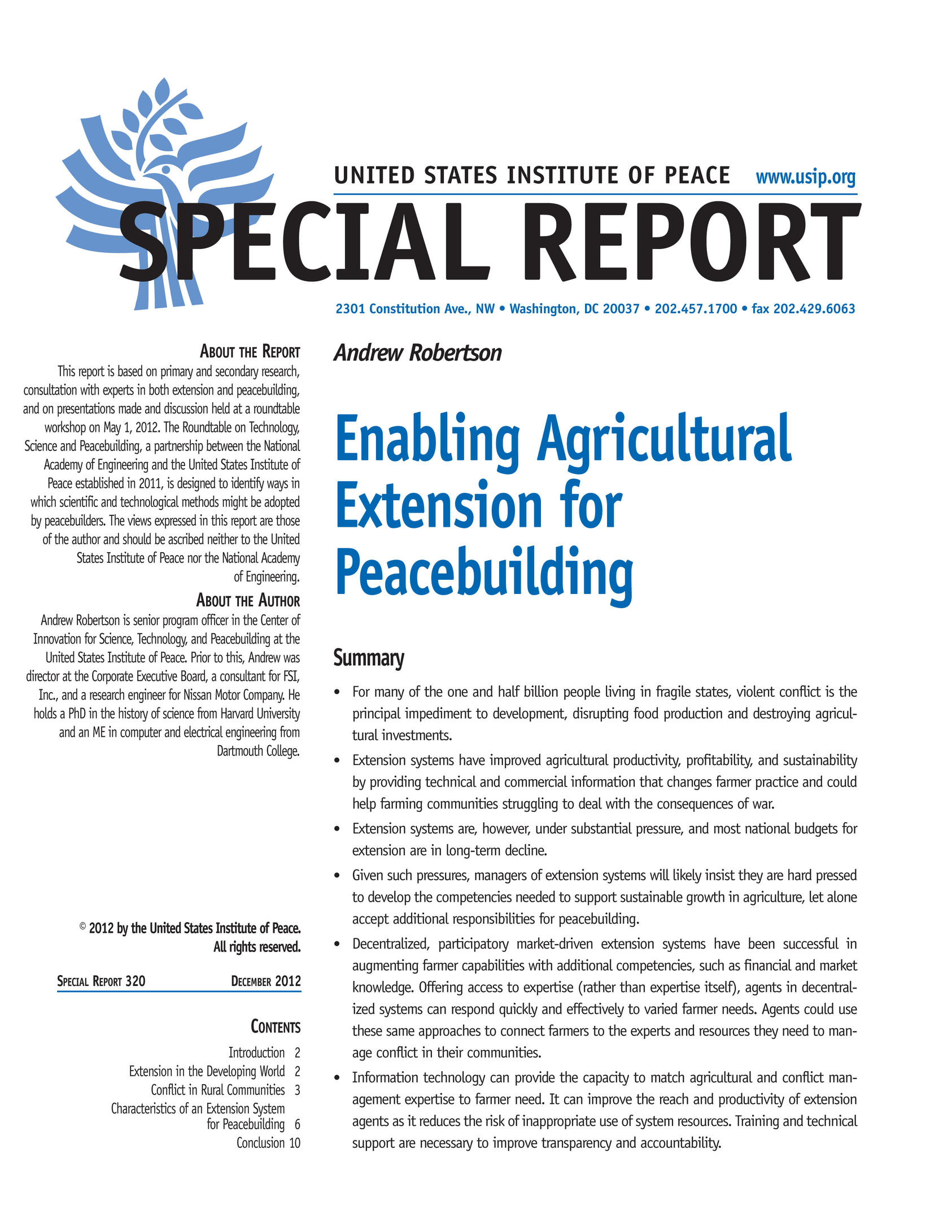In fragile states, violent conflict is the principal impediment to food production, and land rights are often a central issue. Agriculture extension agents, whose job is to assess local farming needs and to connect farmers to agricultural experts and resources, can use the extension approach to help farming communities deal with conflict.

Summary
- For many of the one and half billion people living in fragile states, violent conflict is the principal impediment to development, disrupting food production and destroying agricultural investments.
- Extension systems have improved agricultural productivity, profitability, and sustainability by providing technical and commercial information that changes farmer practice and could help farming communities struggling to deal with the consequences of war.
- Extension systems are, however, under substantial pressure, and most national budgets for extension are in long-term decline.
- Given such pressures, managers of extension systems will likely insist they are hard pressed to develop the competencies needed to support sustainable growth in agriculture, let alone accept additional responsibilities for peacebuilding.
- Decentralized, participatory market-driven extension systems have been successful in augmenting farmer capabilities with additional competencies, such as financial and market knowledge. Offering access to expertise (rather than expertise itself), agents in decentralized systems can respond quickly and effectively to varied farmer needs. Agents could use these same approaches to connect farmers to the experts and resources they need to manage conflict in their communities.
- Information technology can provide the capacity to match agricultural and conflict management expertise to farmer need. It can improve the reach and productivity of extension agents as it reduces the risk of inappropriate use of system resources. Training and technical support are necessary to improve transparency and accountability.
- To select the appropriate experts, extension agents must be able to diagnose the problems farmers face. For extension to have a role in peacebuilding, extension agents should be able to analyze conflict, its causes, and potential solutions.
- The credibility of extension agents depends on their capacity to help farmers overcome agricultural problems. Technical knowledge, inclusivity, and access to resources are critical. Ideally, assistance should be neutral and unbiased. Training on how conflict affects extension and how bias might worsen conflict should enhance the credibility of extension agents in the communities they serve.
About the Report
This report is based on primary and secondary research, consultation with experts in both extension and peacebuilding, and on presentations made and discussion held at a roundtable workshop on May 1, 2012. The Roundtable on Technology, Science and Peacebuilding, a partnership between the National Academy of Engineering and the United States Institute of Peace established in 2011, is designed to identify ways in which scientific and technological methods might be adopted by peacebuilders. The views expressed in this report are those of the author and should be ascribed neither to the United States Institute of Peace nor the National Academy of Engineering.
About the Author
Andrew Robertson is senior program officer in the Center of Innovation for Science, Technology, and Peacebuilding at the United States Institute of Peace. Prior to this, Andrew was director at the Corporate Executive Board, a consultant for FSI, Inc., and a research engineer for Nissan Motor Company. He holds a PhD in the history of science from Harvard University and an ME in computer and electrical engineering from Dartmouth College.